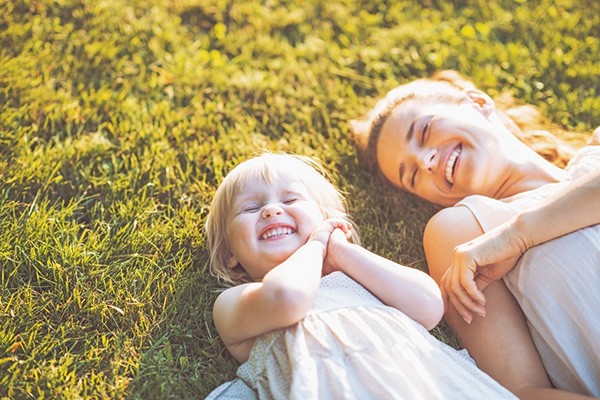When Brenda* ponders her youngest child, a 10-year-old girl with bright blue eyes, it really hits her. Brenda was 10 when her parents divorced. Within a year, her sister had moved in with their dad, and Brenda would spend her summers alone, fending for herself while her mother worked and her father inhabited bachelordom. "I felt like I had a pretty normal family life until the divorce. Afterwards, I felt very neglected and forgotten. Everyone walked away while I stayed there trying to figure out what had happened." When Brenda held her first newborn, now a lanky 13-year-old boy, she promised herself that she would parent differently than she'd been parented.
Whether straying from a lifestyle or from parenting practices that were simply a product of their time (think smoking, pregnant moms who drank), parents often look to create the childhood for their kids that they never had. It can be tough, since people default to what they know. But for parents who were abandoned or abused as children, it's especially challenging. Adult children of divorce and child abuse are more likely to get divorced or abuse their kids. It's a cycle.
In retrospect, Brenda sees that the abandonment was compounded by her parents' and grandparents' bitterness, and, as a child, Brenda's loyalties were constantly tested. Those relationships, and ones with step parents, are still hard today. So recently, she decided to celebrate the holidays without the extended family. Her husband comes from a similarly dysfunctional childhood, and they have grown to depend on one another. "I think it helps us to be kinder to each other about certain triggers we have," Brenda says.
Brenda tries, in everyday ways, to let her nuclear family of four know that they are her main priority. She and her son enjoy walking the dog; she and her daughter are reading Frank Baum's Oz series. Her husband spends quality one-on-one time with them too. When the impulse arises to make her children's childhood magical, Brenda responds with love, "but also a bit of a microscope to make sure that what I'm doing is for the benefit of our whole family—not some need I have to make their childhood better than mine."
Sitting with the Past
"Many people don't understand that healing from trauma isn't about 'getting over the past,'" says Robin Miller. "The experience is fully alive in the person today." Miller has a therapy practice in Katonah where she helps adults with childhood trauma understand the root of difficult experiences that unconsciously continue to affect their everyday life. She says it can be surprising to people when they see how the defenses they created in childhood end up disrupting their later life as well.
Mary* describes her childhood as horrible. She and her two sisters grew up in 1980s Ellenville, to strict, middle-class parents who valued religion and obedience. Mary tried not to rock the boat. Her bed was made; the dishes were cleaned up. Still, if her father was drinking, he'd hit the women without reason. During one of his alcoholic rages, they might lock him out of the house, holding the door as he busted through the beveled glass. If it was bad, they'd call the police, but, because her father was an officer, his friends would respond and a report wouldn't be filed. There was an air of secrecy to her childhood. "We weren't allowed to tell anyone that this was our life because he'd lose his job."
The effects of child abuse can be lingering. The parent-child relationship is pivotal, and it's tough to reject that belief system. A primary caregiver's moods delegate the entire world for the young. Abused children can grow into adults who have a range of pervasive negative emotions. "It's well known that early trauma has a serious impact on health because the body often remains in a constant state of stress," Miller says.
Because of her tumultuous upbringing, Mary had decided not to have children. She was attracted to her husband in part because she couldn't imagine him hitting anyone, not because she fantasized about him as a dad. But five years into the marriage, they both had a mini meltdown and changed their minds. Now she's a stay-at-home mom. For Mary, it was about leaving Ellenville. Her sisters both live within 10 minutes of their childhood home, but Mary's chosen a current life that looks nothing like her traumatic childhood. That awareness guards her against repeating negative parenting habits.












